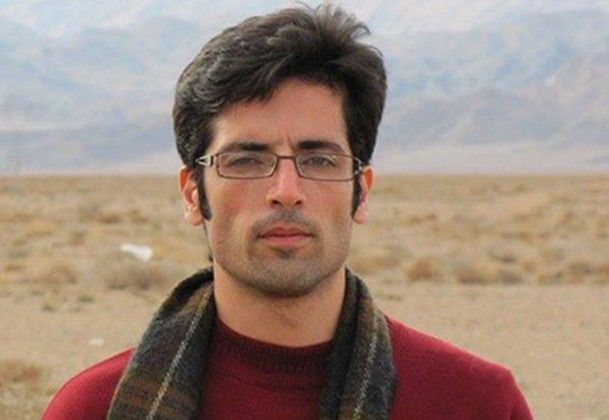By Firoozeh Ramezanzadeh
November 10, 2017 Majid Asadi, an Allameh Tabataba’i University graduate with a degree in economics, was arrested on February 18 at his house in Karaj and taken to Tehran’s Evin Prison.
In a recently published letter, three of Asadi’s cellmates at Rajai Shahr Prison expressed grave concern over his failing health, and urged the authorities to hospitalize him. Asadi, who is 35, is reportedly suffering from acute digestive disorder.
Asadi was arrested a first time on July 3, 2008 and spent 87 days in solitary confinement at Evin Prison’s Block 209. He was released after three months. He was arrested again, tried and jailed for four years in 2010 for “assembly and collusion against national security.” He served his sentence from October 5, 2011 until his release on June 8, 2015. Asadi’s current health problems could be the result of his hunger strike in spring of 2014.
Asadi’s mother told Kayhan London: “My son cannot eat or sleep due to excruciating intestinal pain. He is always nauseous. The prison authorities told me that his blood test was normal and that there was nothing wrong with him. Meanwhile, he continues to experience agonizing pain in his stomach and intestines.”
She added: “My son cannot eat prison food. He is not able to prepare his own meals either. They don’t even give him soup.” She added: “Prison food is awful. I’ve told the authorities that prison food was not nutritious. They’ve ignored my repeated requests to give my son vitamin supplements.”
“They should transfer Majid to a proper hospital,” said the prisoner’s mother. “He needs to undergo a colonoscopy and endoscopy procedures. I have no idea how to make this happen. All of my pleas have fallen on deaf ears.”
She added: “I saw my son last week. He had lost a lot of weight. He couldn’t even sit on a chair. I thought he might be suffering from appendicitis, but he said it was his intestines.”
Asadi’s mother said no court date had been set for her son’s trial yet. “They’ve apparently scheduled a hearing for November 5. We hope for a speedy trial. It has been extremely stressful. My son is innocent. He hasn’t broken any laws. He is in poor health. He should be hospitalized.”
When asked why she didn’t speak to the media about her son’s plight during the four years he was in Evin Prison, Asadi’s mother said: “I thought they might release him quicker if I kept quiet and didn’t speak to anyone about it. But he was in jail for four years. I even spoke to the prison warden who told me that most inmates have preexisting health problems before they are jailed. Majid had no health issue before being sent to prison. He fell ill while in jail.”
She added: “After his release in 2015, Majid spend most of his time looking after his sick father. The judicial authorities are well aware of this fact. I told the prosecutor’s office that Majid’s father had a liver transplant. Majid took care of all of his father’s health matters.”
There have been numerous reports about the dismal state of health and medical care at Rajai Shahr Prison. In her first address to the Third Committee of the United Nations General Assembly on October 25, Asma Jilani Jahangir, the U.N. Special Rapporteur, called on the Iranian authorities to address health and medical care at Rajai Shahr Prison.
In May 2013, a group of inmates at Rajai Shahr Prison wrote a letter to the head of the Judiciary, Sadeq Larijani, pleading for the speedy release of prisoners who suffered serious illnesses. There are currently many ailing inmates similar to Asadi in prisons across the country who are denied medical care.


